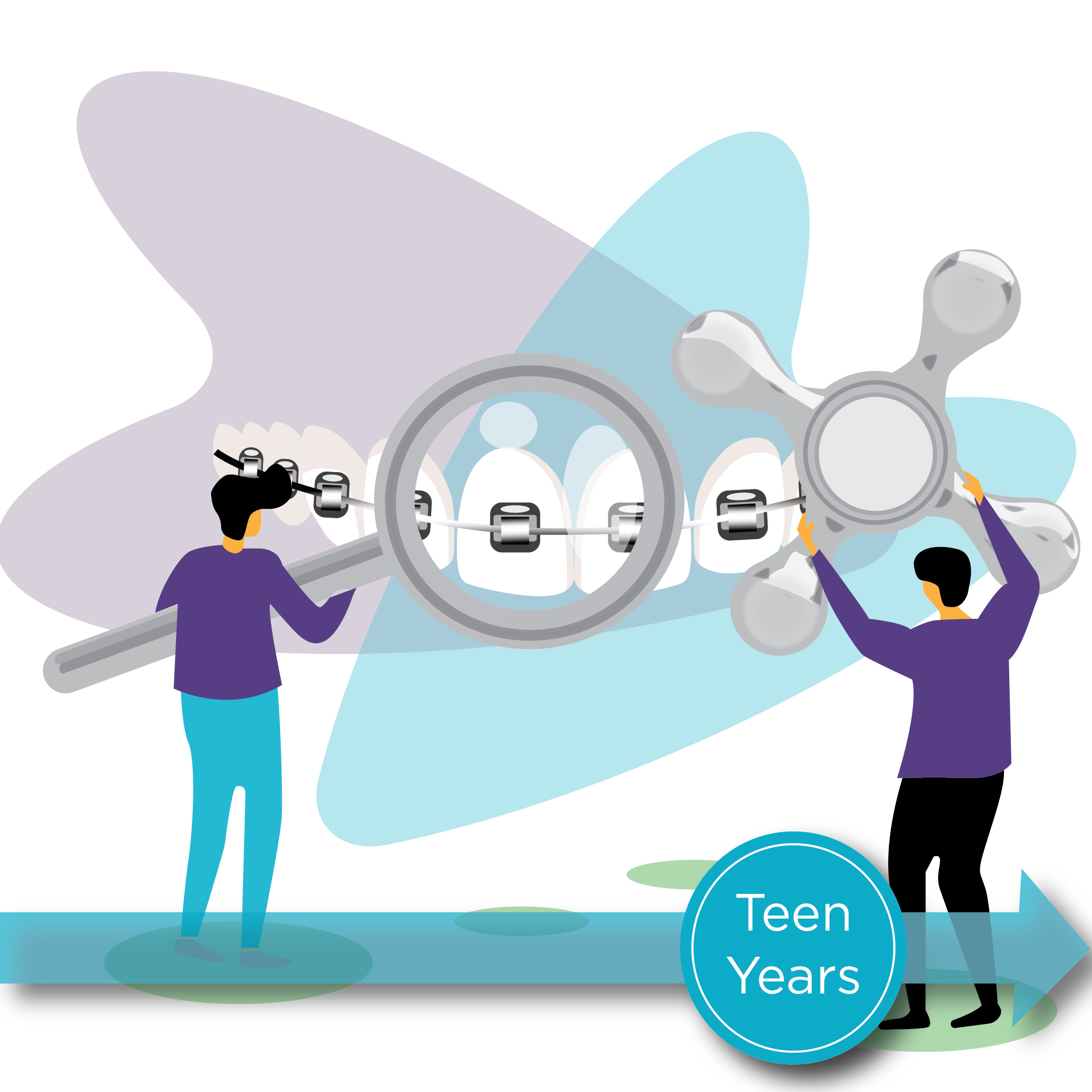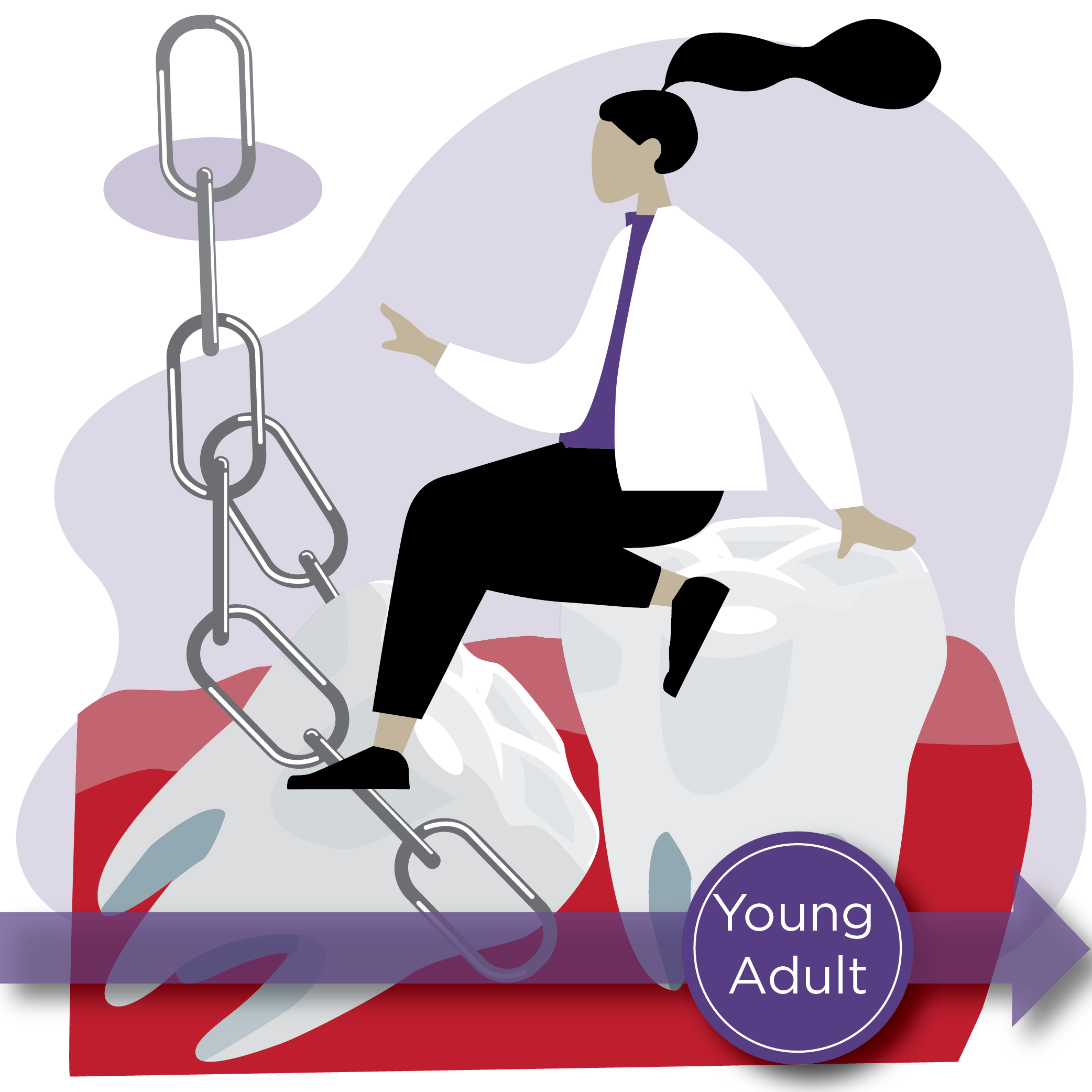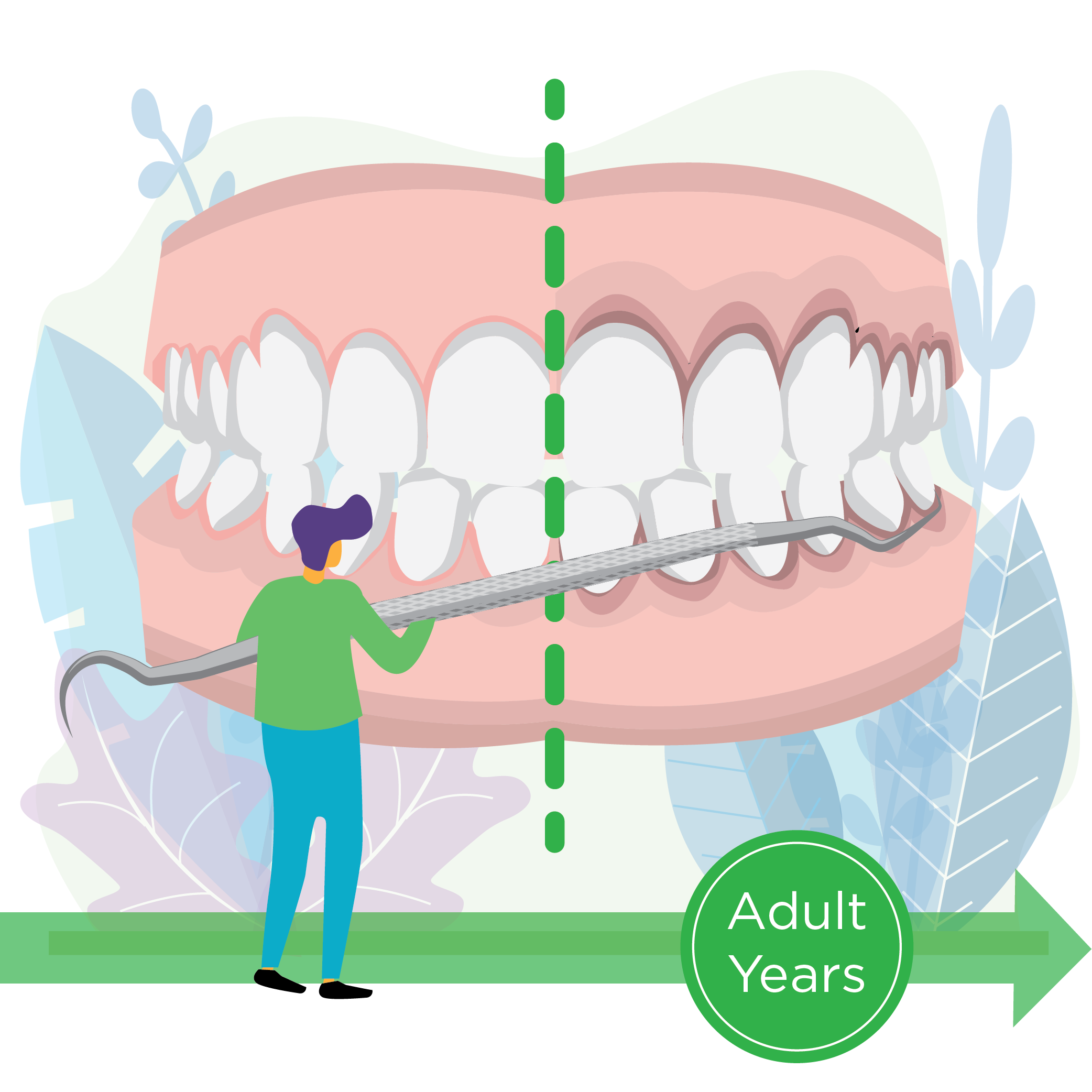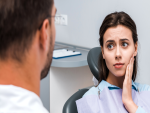
Just as our bodies and minds change over time as we age, so do our teeth. The bones of our jaw can shift, our gums and teeth are impacted by what we eat and drink, and alignments and dental treatments may lose their effect over time.
Here are a few changes you might notice as you reach different age milestones in your life:
Losing baby teeth
Most people begin losing their baby teeth at age 6 or 7 with all of their permanent teeth in place by age 12 with the exception of wisdom teeth.
Effects of braces and retainers
You might get braces anytime between the ages of 9 and 14 because this is when most or all of your permanent teeth will have come in. Once braces are removed, you may be expected to wear a retainer for a length of time in order to keep all of the benefits of the braces.

Extracting wisdom teeth
Wisdom teeth are a third set of molars that usually erupt between age 17 and 25. If your wisdom teeth cannot fully erupt into your mouth, they become impacted. When this happens, they should be monitored for signs of infection and other pathologies. These teeth may need to be removed to avoid this.
Worn teeth and enamel
As we bite, chew, speak, cough and even laugh, our teeth sustain wear and damage over time. There is also a risk of teeth grinding or bruxism. Avoid accelerating the damage by eating a healthy diet, avoid chewing ice or objects that are not food, and getting a mouth guard to wear while sleeping, if recommended by your dentist for bruxism.

Gum health/gum disease
Keeping our gums healthy is extremely important because they support our teeth, hold them in place and protect them. Bleeding gums is usually the first sign of gum disease, known as gingivitis. As inflammation progresses, gums can recede and teeth may become loose and fall out. Periodontal disease typically begins to show signs after the age of 30 and risks of it increase as we age. It typically requires more frequent dental visits and improved oral health routines. Avoid smoking or chewing tobacco as these habits increase the risk of periodontal disease as well.
Dry mouth
As we age, we become more at risk for dry mouth – 1 in 5 seniors experience it. With different medical conditions comes new medications to treat them. There are over 500 medications which list dry mouth as a side effect. Insufficient saliva can lead to oral discomfort, cavities both on the crown (coronal) and the roots of your teeth, and serious gum disease.
Tooth loss and dentures
We know that there are associations and overall health consequences that can be seen with tooth loss including diabetes, coronary artery disease, and nutritional problems. One quarter (26%) of people 65 and older have fewer than 8 teeth remaining and one in six (17%) are edentulous (have no teeth remaining), according to data from the Centers for Disease Control and Prevention. Tooth loss can result in poor nutrition, breakdown of the jaw bone and changes to face shape. A common solution to tooth loss is dentures. Whether you have dentures or not, a strong oral health routine including regular dentist visits is essential to keep your mouth healthy, and ensure dentures fit and function correctly.
This information in this post is for general educational purposes only and does not warrant or represent any information as related to health as specifically appropriate for you. It is not intended to be medical advice or replace the relationship that you have with your health care providers. You should always seek medical advice on any diagnosis or treatment from a qualified health care provider. The information is provided “as is” without any representations or warranties, express or implied.








